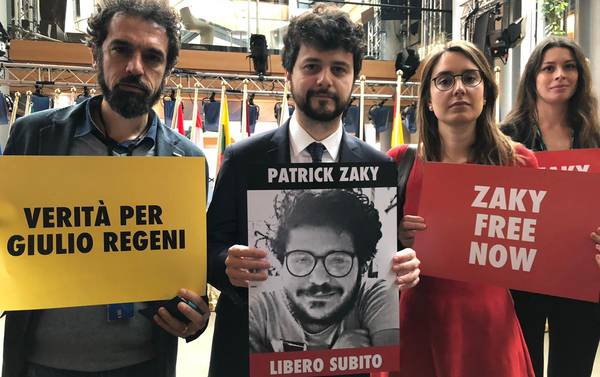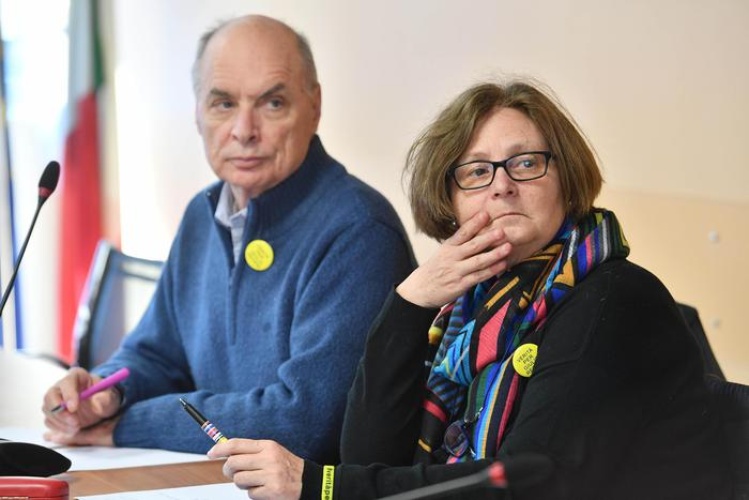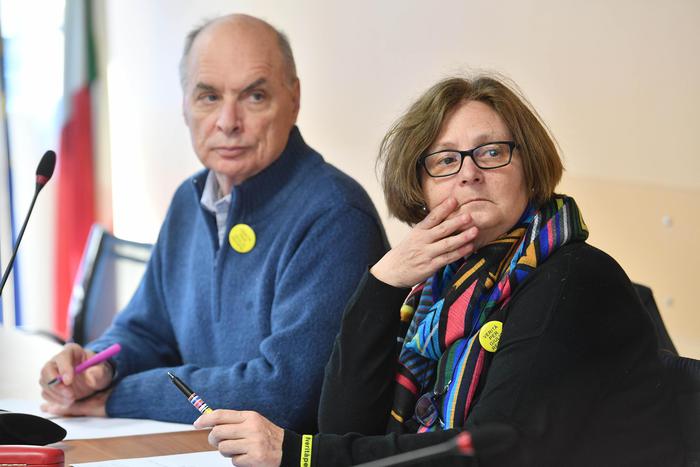Regeni’s mutilated body was found by the side of a major road on the outskirts of Cairo in early 2016.
His murder remains unsolved, but there are widespread suspicions that he was abducted, tortured and killed by Egyptian security forces.
Egyptian officials have repeatedly denied any involvement in the killing of Regeni, a 28-year-old postgraduate student at Cambridge University, who had been researching Egypt’s independent unions for his doctoral thesis.
Italian news media reported on Friday that Rome had approved the sale of two warships to Egypt built by the Italian state-controlled shipbuilder Fincantieri, despite tense relations between the two countries over the unresolved murder.
Prime Minister Giuseppe Conte gave final go-ahead after months of secret negotiations, according to Italian daily La Repubblica.
The Fincantieri sale is part of a much larger potential Egyptian-Italian weapons deal that is estimated to be worth between €9 billion and €10 billion and comprises four more warships, 24 Eurofighter Typhoon jets, 24 M-346 trainer aircraft and a military satellite.
If signed, it would be the largest arms deal in Egypt’s recent history and one of the largest sales by Italy since World War II.
“This government has betrayed us,” Regeni’s parents, Paola and Claudio, told La Repubblica.
“The limit has been reached, we will no longer allow the government to make fun of us.”
Conte sought to defend the government’s decision to sign the deal.
“I have always put Giulio Regeni at the centre of my requests and it will always be so,” he told La Repubblica.
Sources within the government cited by the paper said the move was a “commercial operation that has nothing to do with the search for the truth about the death of Giulio Regeni”.
However, many have condemned the deal.
Erasmo Palazzotto, who leads a parliamentary commission investigating Regeni’s death, said that in light of the latest significant developments the commission wanted to speak to Conte urgently.
Giorgio Beretta, an analyst of the arms trade for the website Osservatorio Diritti, said: “What country would ever sell an entire military arsenal to an autocrat who allows the murder of one of its citizens?”
There has been little progress in efforts to force Egypt to bring Regeni’s killers to justice.
Despite pressure in Italy from the country’s public prosecutors, some of its MPs and members of the public, other parts of the Italian state have moved towards closer relations with Egypt in the years since his death.
Italy’s foreign ministry reinstated its ambassador to Egypt in 2017, a year after their withdrawal owing to Egyptian inaction over the Regeni case.
The Italian oil and gas major Eni also made a $23 billion investment in Egypt’s Zohr gas field.
The lower house of the Italian parliament cut relations with Egypt in 2017, saying they would resume when the Egyptian authorities conducted a proper investigation into the death and held a trial.
But Conte’s cabinet ignored parliamentary pressure and approved the sale of the two warships.
Egypt is also facing renewed criticism from Italy after the arrest and alleged torture of Patrick Zaky, an Egyptian masters student at the University of Bologna who is a researcher at the Cairo-based Egyptian Initiative for Personal Rights.
Zaky remains in detention since being arrested on his return to Cairo, and his case has drawn parallels with Regeni’s disappearance.

Protests at the European Parliament for the release of Patrick Zaky
Last week, Italian Foreign Minister Luigi Di Maio reassured a parliamentary inquiry into the frigate deal that Italy was continuing to follow Zaky’s case.
Di Maio also told parliament that the government continues to “demand the truth [about Regeni] from the Egyptian authorities through real, effective and efficient cooperation”.
Despite reassurances from both Conte and Di Maio, the deal has sparked outrage both in Italy and abroad, with many calling for Rome to backtrack on its approval.
EU Advocacy Officer Claudio Francavilla wrote in an article for Human Rights Watch: “Authorising this arms transfer would send the message that the Egyptian government’s brutal crackdown on human rights, lack of genuine cooperation on the Regeni murder, and refusal to release Zaky and thousands of other political prisoners unjustly jailed in Egypt’s filthy and overcrowded prisons come at no price.”
The deal awaits a final procedural step, a signoff from the foreign ministry office that authorises the sale and export of arms.












